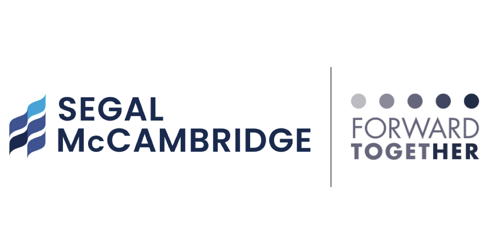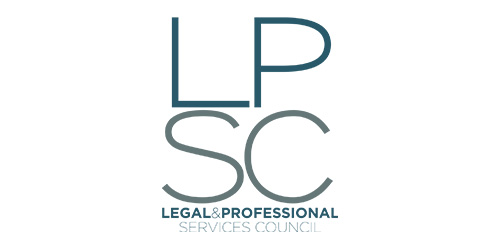Mastering Marketing Initiatives: 4 Steps for Law Firms

When marketing initiatives are launched properly, law firms can drive significant progress, foster firm culture and meet evolving industry standards. Whether the focus is on rebranding, positioning attorneys as thought leaders or enhancing diversity and inclusion, these initiatives can improve lawyer retention and strengthen the firm’s reputation. However, the successful execution of these efforts hinges on careful planning and alignment with the firm’s strategic goals.
When executed well, marketing initiatives can lead to increased client engagement, enhanced brand visibility and a stronger presence in the legal market.
Marketing initiatives are not one-size-fits-all solutions – they should be tailored to meet the firm’s unique culture, client base and long-term objectives. This can mean differentiating the firm in competitive markets, expanding into new practice areas or raising the profiles of key attorneys. Whether the goal is to boost brand recognition or create a more inclusive workplace, the steps toward success require intentionality and strategic thinking.
To launch a successful marketing initiative, law firms should focus on four key elements. These strategies are not exclusive to marketing – they can also be deployed across other initiatives, such as diversity and inclusion, mentorship programs, professional development and community engagement.
- Set SMART Goals
Specific, measurable, achievable, relevant and time-bound (SMART) goals allow firms to be intentional in their approach, set a roadmap for what an initiative aims to achieve and establish benchmarks for success. Without SMART goals, firms may struggle to measure progress or keep initiatives aligned with the firm’s broader business objectives.
Example: If the initiative aims to increase thought leadership, a measurable goal might be publishing 10 articles in industry-leading journals within a year. A time-bound goal could involve completing a rebranding campaign within six months or hosting quarterly client events designed to increase client engagement.
By focusing on measurable aspects, law firms ensure they are moving toward tangible results. Setting realistic timelines, allocating the right resources and making sure goals align with the firm’s overall mission are essential steps to avoid common pitfalls that lead to stalled or failed initiatives.
Takeaway: SMART goals give your initiative structure and a clear sense of direction, ensuring that progress is trackable, and adjustments can be made when necessary.
- Engage Key Stakeholders Early
Stakeholder engagement is a critical success factor in launching any initiative. Involving partners, associates and administrative staff from the start helps ensure the initiative resonates with the firm’s needs and has widespread support. Early buy-in builds excitement, reduces resistance and helps ensure smooth execution.
Example: If a law firm is focused on establishing attorneys as thought leaders, it can help to engage the marketing team, senior attorneys and any other key stakeholders, such as PR or comms teams, on the goals and next steps. Early input on the initiative’s direction can help refine the focus and align it with the firm’s long-term goals.
Takeaway: Early engagement fosters buy-in and increases the initiative’s chances of long-term success, as it reflects input from all key stakeholders.
- Develop a Comprehensive and Clear Plan
A detailed plan is crucial for the smooth execution of any initiative. The plan should outline the necessary steps, timelines, resources and responsibilities to ensure accountability. A solid plan keeps the project organized and moving forward while ensuring everyone knows the role they play in the initiative’s success.
Alongside the plan, incorporate a robust communication strategy. Consistent and transparent communication with stakeholders will guarantee they stay informed and engaged. Regular email updates, internal newsletters and bi-weekly meetings can help ensure everyone is aligned on the project’s progress.
Spearheading a large-scale initiative? Consider creating a communication task force to keep the project on track and everyone aligned with the firm’s vision.
Takeaway: A comprehensive plan serves as a roadmap, providing accountability and transparency that ensures smooth implementation and long-term success.
- Monitor, Evaluate and Repeat
Once the initiative is launched, continuous monitoring is essential to meeting objectives and leveraging technology and data analytics offers valuable insights into effectiveness. Tools like marketing automation platforms, social media management systems and customer relationship management (CRM) software are excellent for tracking interactions, engagement and conversions. Data analytics provides real-time feedback by monitoring key metrics such as website traffic, social media engagement and event attendance, helping to assess which strategies are performing well and where adjustments may be needed.
At the same time, regular evaluations using both qualitative and quantitative metrics help assess progress. Quantitative metrics could include website traffic, newsletter subscriptions, and media mentions, while qualitative feedback could come from client surveys or internal debriefs.
If any elements of the initiative aren’t performing as expected, make revisions in real-time. Flexibility in execution is crucial to adapting to unforeseen challenges and opportunities.
Takeaway: Technology and data analytics provide actionable insights, while continuous monitoring ensures that the initiative stays on track, allowing you to make timely adjustments as needed.
Driving Long-Term Success Through Strategic Marketing Initiatives
Launching a successful marketing initiative in a law firm requires a strategic approach incorporating SMART goals, early stakeholder engagement, a detailed execution plan and data-driven monitoring. By leveraging technology and continuously monitoring progress, law firms can stay competitive in today’s fast-evolving legal landscape.
Remember, these principles are versatile and can be applied to a wide range of initiatives — from diversity and inclusion efforts to professional development programs and marketing campaigns. Success lies in planning, stakeholder collaboration and being responsive to the data and feedback received throughout the process.














